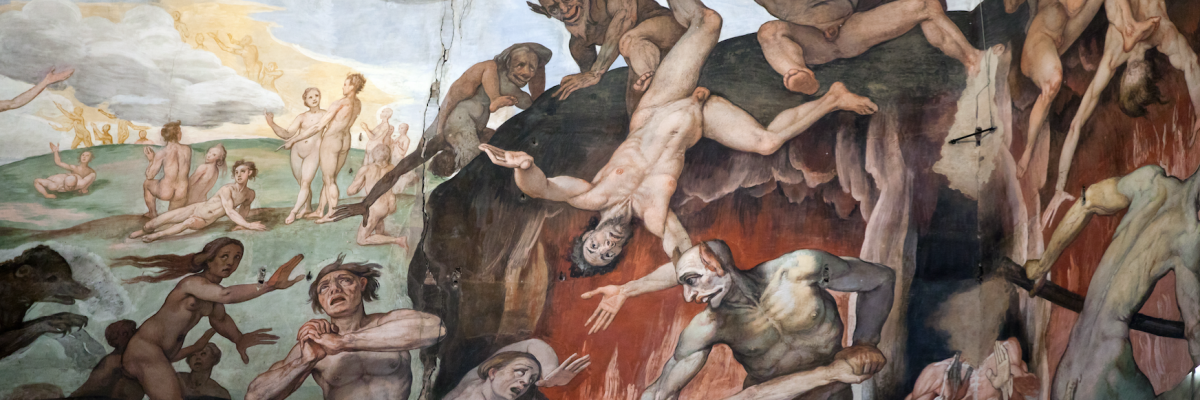
Last week, Sen. Bernie Sanders turned a minor confirmation hearing into a national news story when he asked Russell Vought—a Trump nominee for deputy director of the Office of Management and Budget—about theological statements he made last year in a blog post about Islam and Christianity.
The post was about the decision last year from Wheaton College to dismiss professor Larycia Hawkins for saying that Christians and Muslims “worship the same God.” In defending the decision Vought wrote “Muslims do not simply have a deficient theology. They do not know God because they have rejected Jesus Christ his Son, and they stand condemned.” It was on this statement that Senator Sanders focused during his questioning of Vought. NPR summarized the exchange between the two men in this way:
“Do you believe people in the Muslim religion stand condemned?” Sanders asked. “What about Jews? Do they stand condemned, too?”
“I’m a Christian,” Vought repeatedly responded.
“I understand you are a Christian,” Sanders said, raising his voice. (The senator is Jewish and has said he’s not particularly religious.) “But there are other people who have different religions in this country and around the world. In your judgment, do you think that people who are not Christians are going to be condemned?”
“I believe that all individuals are made in the image of God and are worthy of dignity and respect regardless of their religious beliefs,” Vought said, while also emphasizing “the centrality of Jesus Christ in salvation.”
“This nominee is really not someone who this country is supposed to be about,” Sanders said, announcing that he’d vote against him.
Condemning the condemners
The senator’s line of questioning almost certainly constitutes illegal religious discrimination. Article six, section three of the Constitution stipulates that “no religious test shall ever be required as a qualification to any office or public trust under the United States.” Although the line of questioning might be incorrect, what’s more concerning is the line of reasoning behind it. Believing that someone may be damned does not mean that person is an object of hate or animus. Catholics believe that anyone who dies apart from God’s grace, including practicing Catholics, risks spending eternity apart from God. To warn someone that his belief may keep him from knowing the true God can be an act of mercy and love, and the senator (and others) must understand this.
Furthermore, if Sanders condemns Christians who believe some non-Christians are damned, then he must also condemn the many Muslims who believe non-Muslims are. Granted, not all Muslims interpret the Quran’s teaching on hell in the same way, just as not all Christians interpret the Bible’s teaching on hell in the same way. But many Muslims believe verses like Sura 5:72 explicitly teach that Christians will be damned for all eternity:
They have certainly disbelieved who say, “Allah is the Messiah, the son of Mary” while the Messiah has said, “O Children of Israel, worship Allah, my Lord and your Lord.” Indeed, he who associates others with Allah—Allah has forbidden him paradise, and his refuge is the fire. And there are not for the wrongdoers any helpers.
Can Muslims and non-Christians be saved?
As Catholics we should be prepared to answer the question, “Do you believe non-Catholics or non-Christians are condemned or will go to hell?” In my new book Why We’re Catholic I point out that only the sacrifice of Jesus Christ takes away sin, and salvation comes from being baptized and remaining in a state of grace until death. However, God desires that all people be saved (1 Tim. 2:4) and so he has made it possible for anyone, including those who do not know that Jesus is God, to be saved.
St. Paul declares that even though non-Jews were not given written revelation, God would judge them on the basis of another law: “What the law requires is written on their hearts, while their conscience also bears witness and their conflicting thoughts accuse or perhaps excuse them on that day when, according to my gospel, God judges the secrets of men by Christ Jesus” (Rom. 2:15-16).
Does this contradict Jesus’ teaching that he is “the way, and the truth, and the life; no one comes to the Father, but by me” (John 14:6)? No, because acknowledging that Christ is the only objective way by which we are saved (for only Christ takes away the sins of the world) does not mean a person cannot be saved if he does not know this truth about Christ. For example, one could say antivenom is the only way to be saved from a snakebite, but a child receiving antivenom does not have to know this truth in order to be saved from the bite.
Similarly, a person could seek after “the way” or “the truth” and strive to act with perfect love, all without realizing that he was unknowingly seeking after Christ who is “the way, the truth, and the life.” This also applies to non-Catholic Christians who do not understand the ordinary necessity of receiving sacraments like the Eucharist for salvation. The Catechism says that those “who believe in Christ and have been properly baptized are put in a certain, although imperfect, communion with the Catholic Church” (838).
But if people can be saved if they don’t know Jesus or his Church, then why bother telling them about the Faith at all? Don’t we risk their souls by giving them an opportunity to reject the gospel? Consider this analogy:
Imagine you are trying to help people cross over a river that has partially frozen over. The river is shrouded in fog and when people choose to walk across its icy surface they disappear into the mist. Did they make it across? It’s possible they safely made it, but it’s also possible, if not probable, that many of them did not make it across. Let’s say, however, that you knew about a bridge that safely crosses over the river. Even if they might reject your offer, wouldn’t you still tell people about this safer and more certain way to get across the river?
That’s why Jesus commanded his followers to “make disciples of all nations, baptizing them in the name of the Father and of the Son and of the Holy Spirit” (Matt. 28:19).



